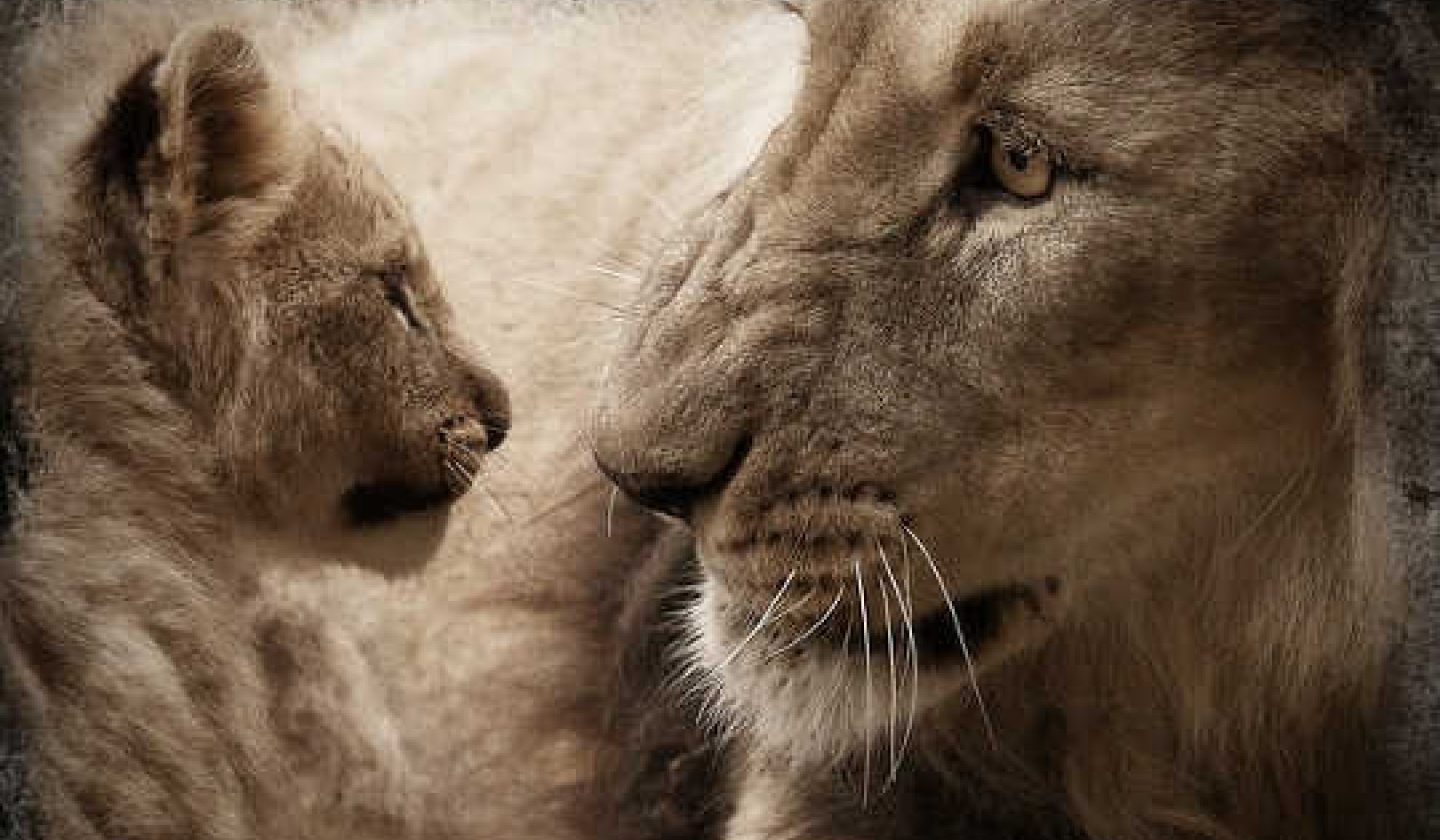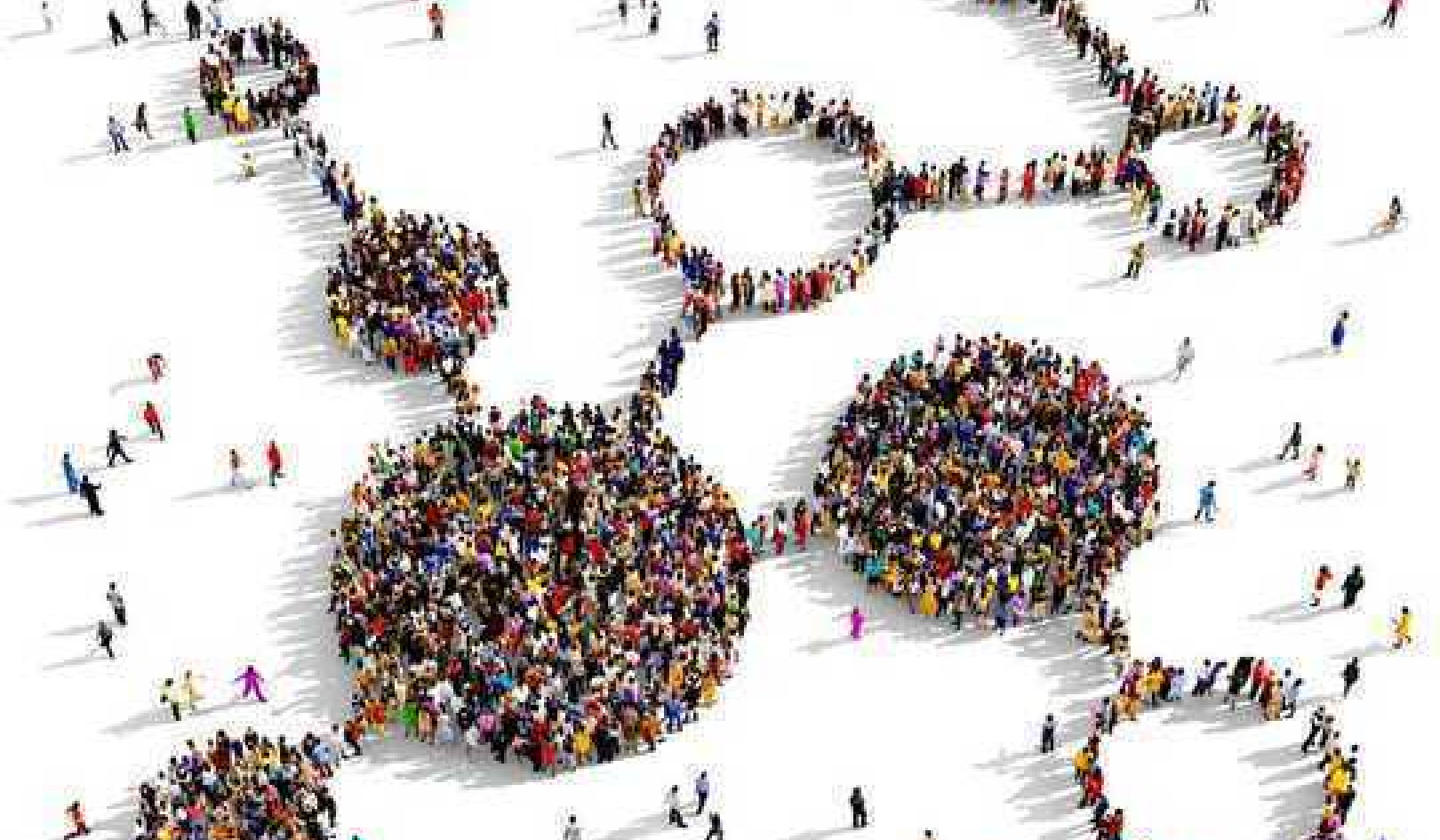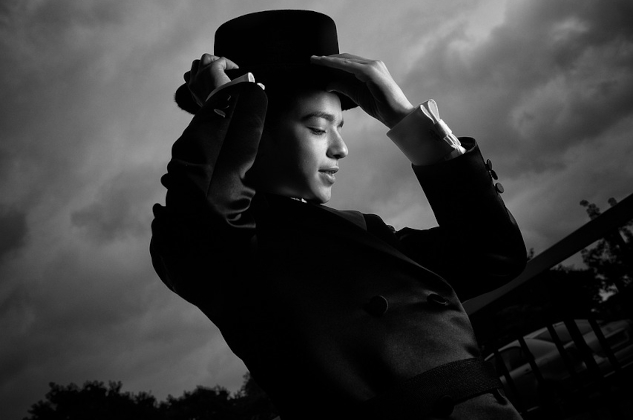
Image by rdmphotosltd from Pixabay
In this Article:
- What does it mean to be truly authentic?
- How can authenticity lead to personal growth?
- The challenges and rewards of living an authentic life.
- Strategies to be a better version of yourself every day.
- How to overcome the shadow of others' expectations.
How Being Authentic Helps You Be A Better You
by Gary C. Cooper.
Authenticity is a collection of choices
that we have to make every day.
It’s about the choice to show up and be real.
The choice to be honest.
The choice to let our true selves be seen.
— BRENÉ BROWN
I was twenty-eight when my father died of a heart attack. It chokes me up to write those words because it takes me right back to his wake.
I buried my grief with my father that day and began driving myself relentlessly. He’d had big plans for me, grooming me in business and even for politics. Now he’d left me to run a business with five hundred employees, $25 million in revenue, and ten partners older than me.
Two months after the funeral, the bank called our loans in full. “Because of a significant change in management,” they explained, and demanded that I raise $8.5 million.
The bank also called the $25 million loan my dad and his partners were carrying on their nursing home business, just to make it even more interesting for a young man who’d lost his father, the brains and energy behind the whole operation.
I scrambled like crazy.
I’ll never forget the way partners, family, and friends all stepped up to help. Besides the tsunami of business crises, I also had to navigate a mountain of state and federal paperwork to settle his estate. So I did what my dad would have done: work, work, and more work.
That was his remedy for every problem, and it became my playbook. I managed to avoid bankruptcy and became successful, developing and selling businesses with revenues in the thirty- to fifty-million-dollar range. Some friends praised me and said Dad would be proud; others disagreed with my decisions and assured me Dad was rolling over in his grave.
I experienced exactly what the actor Matthew McConaughey described in his book Greenlights about his own father’s death: “Even though my dad’s no longer physically here, his spirit is still alive in me for as long as I keep it alive. I can still talk to him, do my best to live by what he taught me, and keep him alive forever.”
MY SHADOW LIFE
As much as I loved and now missed my father, I came to realize there was something wrong with the way he lived in me. I was suffocating under his shadow, haunted by the expectations I imagined he had for me, trying to prove myself to a ghost.
I became a smart businessman, a good dad and husband, a contributor in our community. We raised our kids with three other couples, and I never missed a game, not even a practice. We had some great years.
But I was revved up all the time, running my businesses like a reckless gambler, and it took its toll on my health. After more than ten years of out-of-control workaholism, keeping a lid on my feelings, fighting with depression, numerous surgeries, never asking for help, and drowning my stress in alcohol, everything fell apart.
Writing for CareerCast, Morley D. Glicken warned: “When work becomes all consuming and joyless—that is, you go well beyond what’s necessary and have no other interests or activities—it becomes a negative addiction. Workaholics work because they have nothing else to take its place. Their work addiction is a recurring obsession, and typically joyless.”
Joyless it was. My only mentor was dead, and I was following him toward an early grave. I latched on to a couple of friends who were buying businesses to develop the largest homecare enterprise in the country. But now I had someone else to compare myself to, which made things worse.
My self-destruction accelerated through an ugly three-year period that tore my health, my family, and my whole life apart. No one with any sense would have bet a nickel on my chances at that point.
I was hopelessly stuck in one gear and couldn’t get out of it.
I wasn’t just a workaholic; I was a “do-aholic.” My addiction was to doing. I just had to be doing something all the time. And it didn’t matter how much I was worth in dollars—at times I was worth a lot—because I believed I was worthless.
I wasn’t living my own life. None of my achievements felt like they were mine. I was stuck. I kept comparing myself to others and coming up short, trying to win, but every win was hollow ... because I was a hollow man.
FEELING STUCK
Jordan Brown, blogging for the Mental Health Institute, wrote: “Feeling stuck starts with your thoughts. If you think you’re stuck, you’re stuck. It’s as simple—and as complicated—as that. Thoughts create your situation. They frame how you see the world. They are, in fact, the foundation of your current paradigm. It’s so easy to use your thoughts to create a convenient narrative about why you’re worthless and can’t go anywhere.”
That’s the ceiling I was ramming my head up against, trying to reach and exceed my father’s goals. But he was gone. His life was over. I was meant to live my life, not extend his, no matter how wonderful he’d been. And he was. My heart aches when I remember him. That line of friends at his funeral? There wasn’t a single person there who didn’t love and respect him.
A GENEROUS MAN
Buck, the family called him, but he was Charles Cooper in our community, where he was known as the Robin Hood of Health Care for South Carolina. Dad was the most generous man, a loving dad who inspires me to this day with how he treated me and our family and his friends.
It's Christmas Eve. Like every year throughout my childhood, we kids have piled into the back seat of our family sedan to drive around the neighborhood with Dad. We take turns running to mailboxes with unmarked envelopes. Years later, I find out there was a thousand dollars in each envelope, given anonymously to friends in need.
Dad had always invested in the well-being of our community, even early on when he didn’t have much. For many years he paid 100 percent of the health care for his employees. I remember the day when he wept because growth finally made that financially unworkable.
Dad was the most generous man I ever knew. But he was also a workaholic. Well, monkey see, monkey do. I became a workaholic too. He didn’t take care of his body; neither did I. He had back surgeries; I ran forty miles a week to stay fit ... and ended up having my own back surgeries. One day, it all caught up with me.
BAD NEWS
“Gary, I’m so sorry to tell you this, but you’ve probably got less than a month to live.”
That’s what my doctor told me. It wasn’t a surprising verdict for a workaholic, a do-aholic, an alcoholic, an impulsive entrepreneur who ignored risk and lived with constant anxiety and stress. I was having regular panic attacks because I’d run up three million dollars in debt and owed the IRS another half million, even though I’d made a small fortune building and selling small companies.
My wife and kids had lost patience with me, and my business partners were seriously concerned about business repercussions from my personal challenges, which was totally justified.
I wasn’t putting a gun to my head, a rope around my neck, or swallowing a bottle of pills, but I was killing myself. I was just forty-five years old.
Meanwhile, underneath it all, every minute of every day, my father’s ghost kept nipping at my heels.
Every father should remember that one day his son will follow his example instead of his advice. — CHARLES F. KETTERING
Bruce Springsteen offered some good advice in his autobiography, Born to Run: “We honor our parents by carrying their best forward and laying the rest down, by fighting and taming the demons that laid them low and now reside in us.”
In the end, I didn’t need a superhero to save me. My friend Mark showed up with some tough love. “Sure,” he said, “you’ve got a drinking problem, and your body’s a mess. But those aren’t the real issues, and neither is your overwork, not any of the stupid things you’re doing. Your real problem is that you’re comparing yourself to others, especially your father. Stop doing that, man. Compare you to you! Just try to be a better you every day.”
Copyright ©2023. All Rights Reserved.
Adapted with permission.
Publisher: Forbes Books.
Article Source: The Success Paradox
The Success Paradox: How to Surrender & Win in Business and in Life
by Gary C. Cooper with Will T. Wilkinson.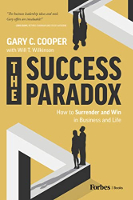 The Success Paradox is the improbable story of a life and business transformed, told in a warmly authentic style that says: “I hit rock bottom, I surrendered, I began doing the opposite of what I’d been doing before, miracles happened, and here’s what you can learn from my journey.”
The Success Paradox is the improbable story of a life and business transformed, told in a warmly authentic style that says: “I hit rock bottom, I surrendered, I began doing the opposite of what I’d been doing before, miracles happened, and here’s what you can learn from my journey.”
With riveting personal details that illuminate his discoveries, Gary details how he defied the odds – not just to survive but to thrive - by implementing a series of paradoxical strategies, fundamentally opposite to anything he’d ever done before. The result is an inspiring book about what happened to him and a blueprint for readers to experience how to surrender and win in business and life.
Click here for more info and/or to order this hardback book. Also available as a Kindle edition and as an Audiobook.
About the Author
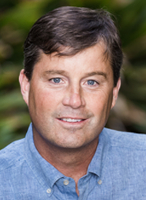 GARY C. COOPER was 28 when his father died suddenly, making him CEO of a South Carolina health care business with 500 employees, $25M in revenue, and ten partners much older than him. Two months after his father’s funeral the bank called all their loans, demanding $30M in 30 days. So began Gary’s roller coaster ride into workaholism, alcoholism, near bankruptcy, and family strife, culminating in a doctor’s grim diagnosis: “You have less than a month to live.”
GARY C. COOPER was 28 when his father died suddenly, making him CEO of a South Carolina health care business with 500 employees, $25M in revenue, and ten partners much older than him. Two months after his father’s funeral the bank called all their loans, demanding $30M in 30 days. So began Gary’s roller coaster ride into workaholism, alcoholism, near bankruptcy, and family strife, culminating in a doctor’s grim diagnosis: “You have less than a month to live.”
But Gary turned everything around. Today he is sober, healthy, happy, his family is reunited, and his company, Palmetto Infusion Inc., is valued at $400M. How he did it reveals three astounding secrets that turn best business practices upside down.
For more info about Gary, visit garyccooper.com. For info on the non-profit organization he co-founded with Will Wilkinson, visit OpenMindFitnessFoundation.org
Article Recap:
Being authentic is about making daily choices to show up as your true self. This article explores how embracing authenticity can lead to personal growth and a better you. It delves into the challenges of living authentically, especially when dealing with the expectations of others, and offers strategies to overcome these obstacles. The key takeaway is that by being true to yourself, you can achieve a more fulfilling and balanced life.

























